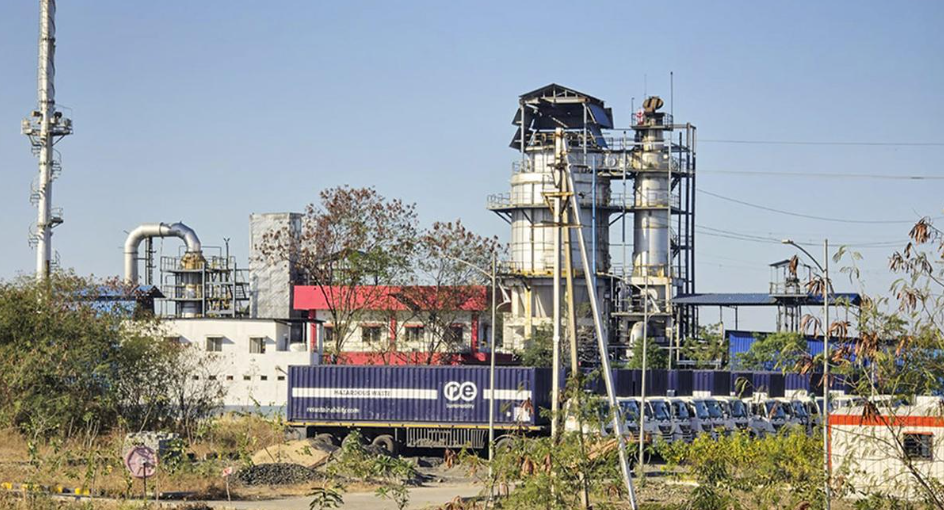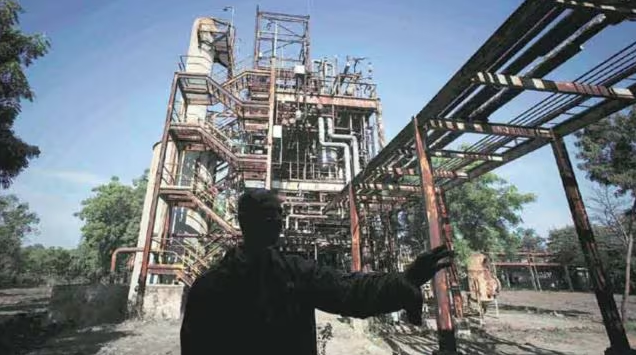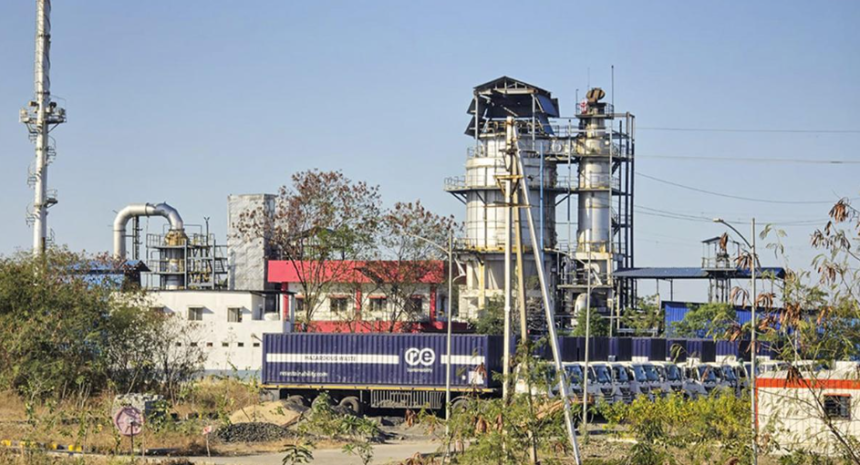1. Introduction: Preserving Justice for Bhopal Gas Tragedy Victims
The Bhopal gas tragedy of 1984, considered one of the world’s worst industrial disasters, continues to impact the lives of thousands. Decades after the disaster, survivors still grapple with severe health issues and struggle for adequate compensation and rehabilitation. Recently, the Madhya Pradesh High Court stepped in, urging the central and state governments to take significant steps toward ensuring better healthcare and accountability.
A Division Bench comprising Chief Justice S.K. Kait and Justice Vivek Jain has directed the digitisation of medical records for all survivors. The order came during a hearing of a contempt petition filed by the Bhopal Gas Peedith Mahila Udyog Sanghathan (BGPMUS), an organization advocating for the rights of survivors.
This move could mark a pivotal moment in addressing the survivors’ long-standing grievances, ensuring a more systematic approach to healthcare delivery and documentation.  For the more information click on this link
For the more information click on this link
2. The Court Directive: A Push for Accountability
The High Court’s directives are aimed at improving the management and accessibility of medical records for survivors, many of whom are dealing with chronic conditions resulting from toxic gas exposure.
- Digitisation of Records: The court ordered the Centre and the Madhya Pradesh government to digitise the medical histories of all survivors promptly. This step aims to create a centralized database for better treatment and monitoring of health issues.
- Monitoring Health Programs: The court emphasized the need to ensure effective implementation of health programs specifically designed for the gas tragedy survivors.
- Accountability to Survivors: The Division Bench underscored that digitisation is not merely a bureaucratic exercise but a crucial component of justice for those who have suffered for nearly four decades.
The directives underline the importance of streamlining healthcare for survivors while setting a benchmark for handling such crises in the future.
3. The Bhopal Gas Tragedy: A Recap of the Disaster
To understand the current situation, it is crucial to revisit the grim events of December 2–3, 1984.
- What Happened: A methyl isocyanate (MIC) gas leak at the Union Carbide India Limited (UCIL) pesticide plant in Bhopal killed thousands instantly and left tens of thousands with severe injuries.
- Human Impact: Over 5,000 deaths were officially confirmed, but unofficial estimates suggest the toll was much higher. Additionally, more than half a million people were exposed to the toxic gas, Bhopal leading to long-term health complications.
- Continued Struggles: Even decades later, survivors deal with respiratory diseases, cancers, birth defects, and neurological disorders. Many still await adequate compensation and rehabilitation.
The disaster’s aftermath underscores a critical failure in addressing the needs of victims and their families.
4. The Role of the Bhopal Gas Peedith Mahila Udyog Sanghathan (BGPMUS)
BGPMUS has been a relentless advocate for the rights of survivors since the tragedy.
- Focus Areas: The organization works on securing compensation, Bhopal better medical care, and rehabilitation measures for survivors.
- Contempt Petition: In this particular case, BGPMUS filed a contempt petition, alleging that both the Centre and the Madhya Pradesh government have failed to implement previous orders regarding the rehabilitation of survivors effectively.
- Advocacy for Digitisation: The group has consistently highlighted the disorganized nature of medical record-keeping, which hampers survivors’ access to proper treatment and compensation.
The organization’s efforts have brought attention to the systemic neglect faced by the survivors.
5. Challenges in Addressing Survivors’ Health Needs
The High Court’s directive to digitise medical records addresses a range of underlying challenges:
- Fragmented Records: Many survivors’ medical histories are either incomplete or scattered across multiple healthcare facilities, making long-term treatment difficult.
- Inadequate Infrastructure: Government hospitals and rehabilitation centers lack sufficient resources to cater to the unique needs of survivors.
- Data Management Gaps: The absence of a unified digital system has led to duplication of efforts and delays in medical care.
- Psychological Impact: Survivors often feel neglected, leading to a loss of trust in public healthcare systems.
Digitising records could help overcome these issues by providing a structured, accessible, Bhopal and transparent system.
6. Government Response: Past Promises and Future Actions
The Centre and the Madhya Pradesh government have made several promises over the years to improve survivors’ lives. However, implementation remains a significant hurdle.
- Existing Programs: Special healthcare schemes for Bhopal gas victims exist but lack proper execution and monitoring.
- Slow Progress: Commitments such as building advanced healthcare facilities for survivors and improving compensation mechanisms have seen limited progress.
- Revised Focus: Following the court’s order, both governments have pledged to expedite the digitisation process and take corrective measures.
The court’s intervention could potentially inject a sense of urgency into fulfilling these commitments.
7. Survivors’ Voices: Hopes and Challenges
The survivors of the Bhopal gas tragedy continue to fight for justice.
- Health Concerns: Many survivors narrate stories of delayed or improper treatment due to lack of proper records.
- Compensation Issues: Survivors argue that poor documentation has hindered their ability to claim compensation effectively.
- Renewed Hope: For many, the court’s directive is seen as a ray of hope in their decades-long struggle.
One survivor stated, “For years, we’ve been reduced to mere statistics. Digitised records will at least ensure our health concerns are taken seriously.”
8. Experts Weigh In: Importance of Digitisation
Healthcare and legal experts welcomed the court’s directive, citing several benefits:
- Improved Treatment: Digital records allow for better diagnosis and monitoring of chronic conditions.
- Enhanced Accessibility: Survivors can access their records anywhere, Bhopal ensuring continuity of care.
- Transparent Administration: Digitisation minimizes discrepancies in data, promoting accountability.
- Prevention of Future Disasters: Lessons from digitising Bhopal records could inform better disaster response mechanisms in the future.
However, experts also cautioned that digitisation must be accompanied by proper training for healthcare workers and robust cybersecurity measures.
9. The Path Forward: Key Recommendations
The success of this initiative will depend on coordinated efforts by multiple stakeholders.
- Collaborative Approach: Both the Centre and the MP government must collaborate closely with NGOs, healthcare providers, and IT experts.
- Timely Execution: The digitisation process should have a clear timeline with milestones to ensure swift implementation.
- Capacity Building: Training programs must be conducted to help medical staff adapt to digital systems.
- Privacy and Security: Adequate measures must be taken to protect survivors’ data from misuse or breaches.
- Monitoring Mechanism: An independent body should oversee the digitisation process to ensure transparency and accountability.
These steps can ensure that survivors receive the care and justice they deserve.  For the more information click on this link
For the more information click on this link
10. Conclusion: Justice Through Digitisation
The Bhopal gas tragedy remains an indelible scar on India’s industrial and social landscape. While no measure can undo the suffering caused, Bhopal steps like digitising medical records are a testament to the nation’s resolve to learn from past mistakes and provide survivors with the dignity they deserve.
The High Court’s directive is more than a technological upgrade—it is a reaffirmation of justice and accountability for those who have been battling the disaster’s effects for nearly four decades.
With sincere implementation, this initiative could transform the healthcare landscape for the survivors, turning a painful legacy into a testament of resilience and reform. ALSO READ:-Tirupati Stampede: Rahul Gandhi Condoles the Death of Devotees, Urges Congress Workers to Provide Assistance 2025





